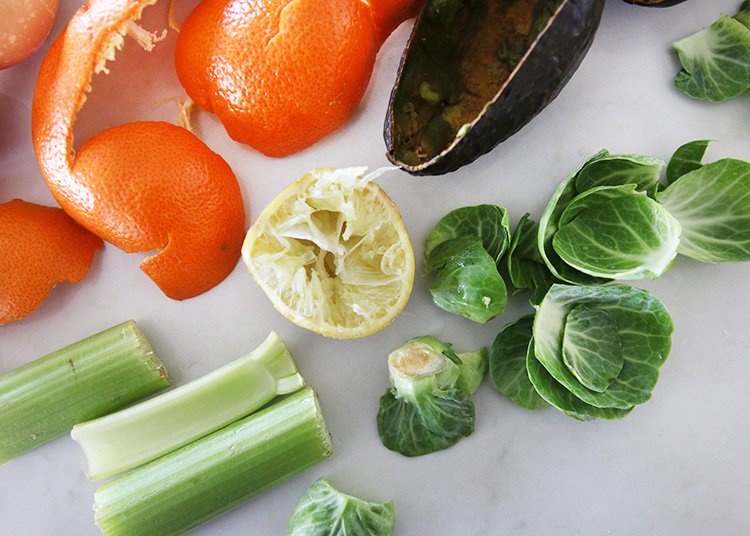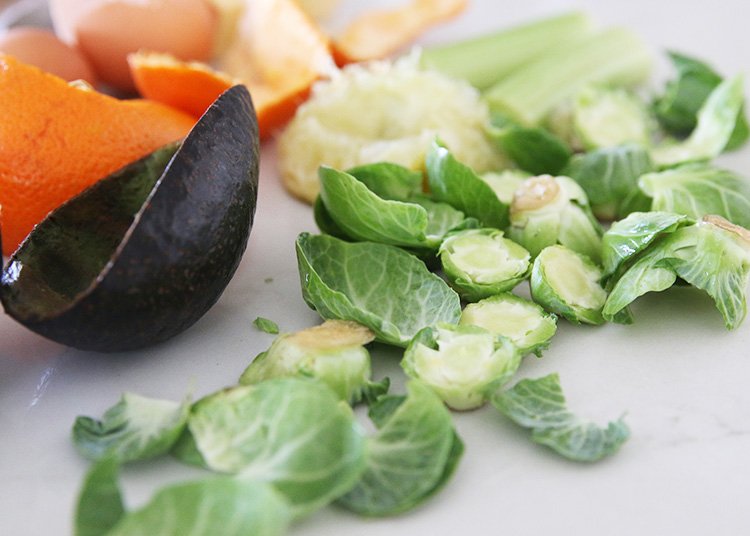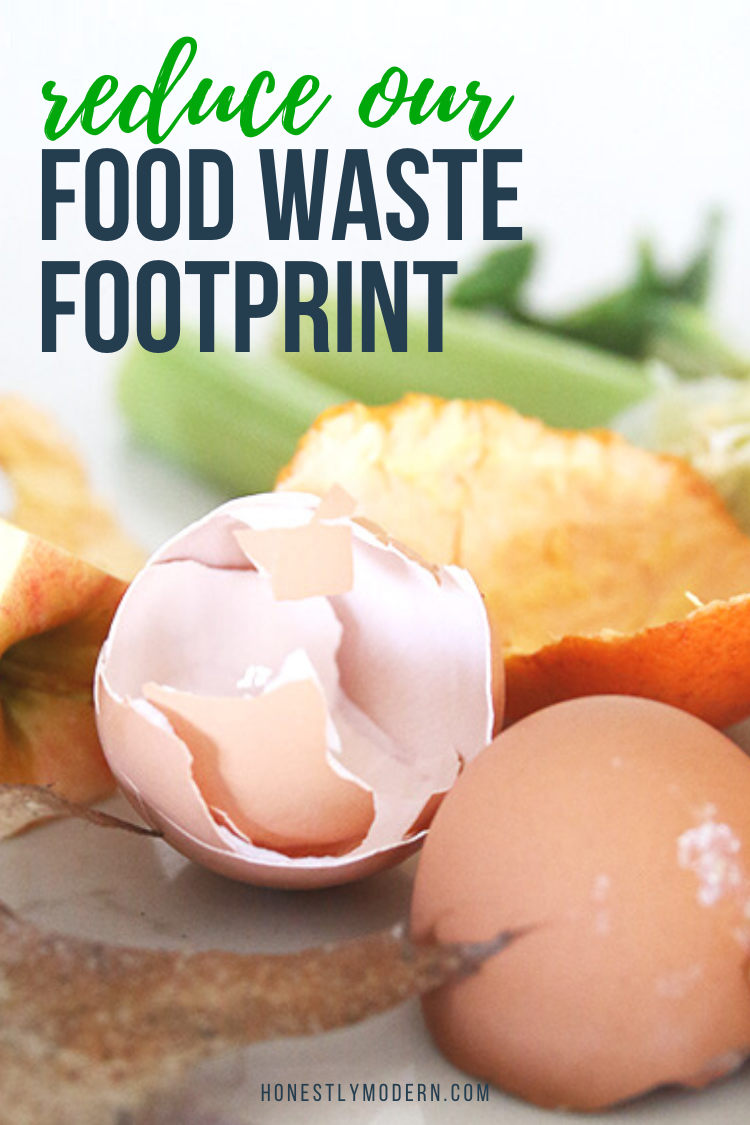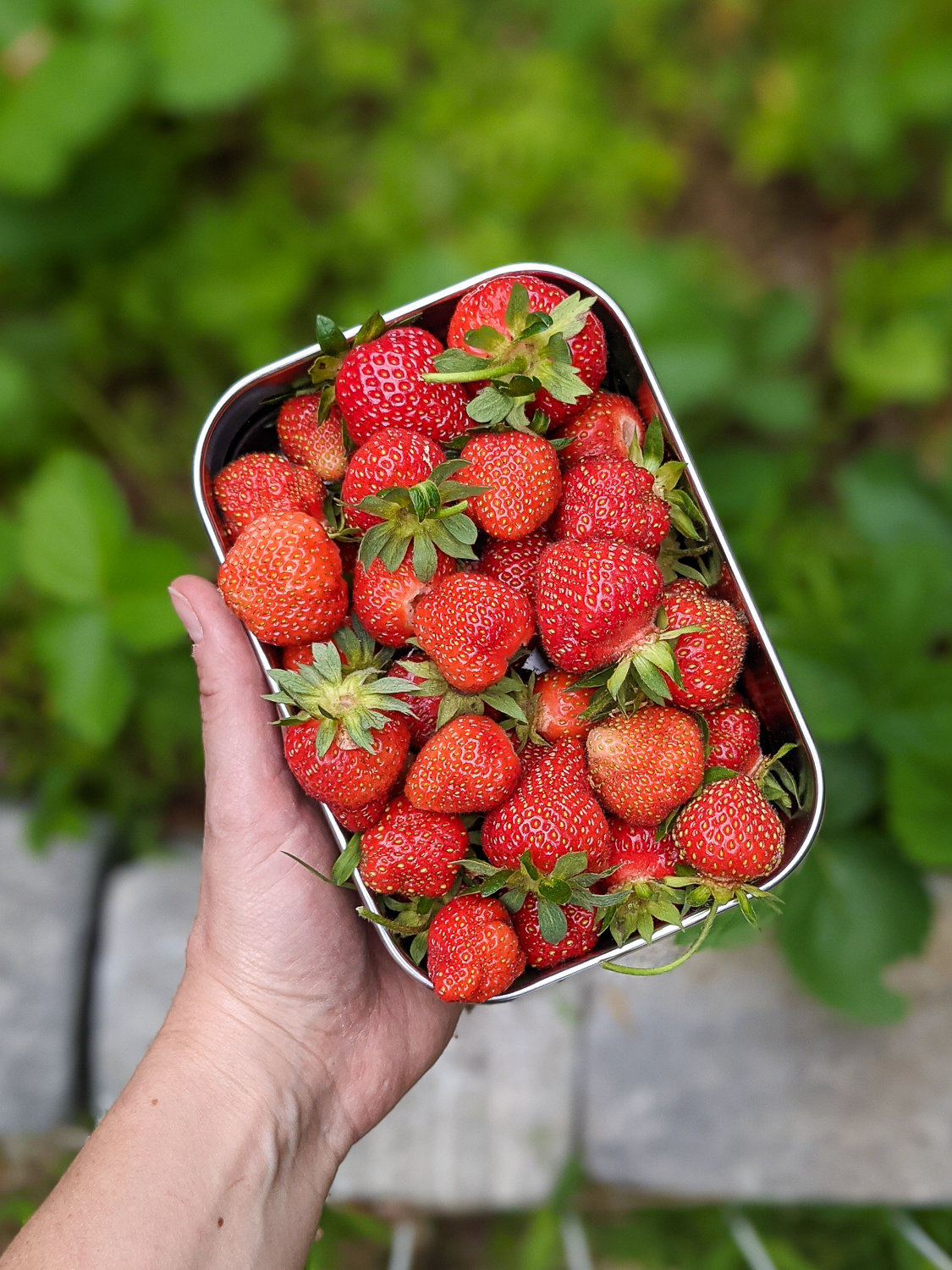Reduce Our Food Waste Footprint
Want to reduce your food waste footprint? Read on for more details about why food waste matters, how individual actions help reduce food waste, and how to connect with others on the same mission! We’ve got lots of great information and tips on reducing food waste in our homes all right here!

It’s all but official. We are stuck at home for another month after the President recommended that everyone in the United States extend our “#QuaranTeam” restrictions through the end of April.
I’m not all that surprised. While there are plenty of reasons we will be excited to get back to some semblance of normal, we have found a few silver linings in all the craziness.
Today, I hope I have another silver lining for you to try with your family during “QuaranTeaming time”.
Reduce Our Food Waste Foodprint Challenge and Community
With another month on tap for staying home, I thought it would be fun to do a little eco-challenge, and I hope you’ll join us. We’re going to try a 30-day challenge to Reduce Our Food Waste Footprint (you can start whenever you want!). To be sure, I use the term “challenge” loosely; let’s all just do our best and let that be good enough! More than anything, it’s the Facebook Community and the ideas and wins we can share.
To join, sign up below and you’ll get the materials and an invite to the private Facebook Group delivered to your email! It’s super easy and totally free.
Truth be told, we think a lot about food waste in our house already, but there is so much more to learn. There are also many habits we can hone to incorporate them more seamlessly into our lives. We can always learn more about storing food properly, making recipes with leftovers or food that is nearing expiration, freezing food to store for later, and composting the inevitable food scraps that just won’t get eaten.
It’s Already Crazy, I Get It
Most of us, especially those with kids, have plenty on our ”to do” lists right now. This isn’t a challenge to turn your life upside down (the virus did that for you already). This isn’t a challenge to transform you into a renowned chef or master meal prepper or an expert anything. This is just a series of really simple daily activities you can do with your family around many things you already do each day.
There’s no set requirement for each day. I have simply created a list of different ideas that you can use to learn about food waste, reduce it in your homes, be more aware of the food you already have and use it wisely, and even scratch the surface of composting at home if you don’t already do it.
Each day, you simply take credit for doing one of the activities on the list (or a related activity if you have another idea that fits the bill). I’m certainly no food waste expert, so I’m sure you all have wonderful ideas to reduce our food waste that didn’t make it on my list.
I have also created a Facebook group for participants where we can share ideas, suggestions, and especially our daily wins! Everyone needs a little celebration these days.
Are you in? If so, sign up on the form above and you’ll get an email with all the details, two pages of food waste reduction ideas, a tracker, and a link to join the Facebook Community for tips, questions, and celebration.

Why Do We Care About Food Waste?
40% of the food we produce in this country ends up wasted. That’s a whole lot of energy, time, people, equipment, fuel, and environmental resources all exploited for absolutely no benefit.
Food is wasted for a variety of reasons as it travels from cradle to grave. Some food is left in the fields because low prices make it unprofitable to harvest. In other words, the labor to collect and distribute the food costs more than farmers will earn for the products.
Some food makes it out of the field to be packaged but doesn’t leave the facility because it doesn’t meet the aesthetic standards of our grocery stores and restaurants, standards inherently driven by consumer demands. We’ve learned to reject produce for simple beauty imperfections.
Another contingent of food is lost at grocery stores and in restaurants. Grocery stores throw away incredible amounts of food. They overstock shelves to make them look full, even late into the evening when they know they won’t sell things. At night’s end, the excess is trashed.
Packaged items are thrown out in anticipation of expiration dates, many of which are “best buy” dates, not dates when food is no longer edible. The food is still perfectly good to eat. Restaurants serve gigantic portions that we don’t eat, and we throw away much of the excess.
After arriving home, consumers continue to waste even more food. We make ambitious plans to cook healthy dinners every night, and the days get away from us. Food hides out in the back of the fridge and is forgotten. We serve larger portions to fill ever-growing plates, and we don’t eat everything served. For so many reasons, we buy far more food than we end up eating, and the remnants and leftovers rot until they end up in our trash cans, and ultimately our landfills.

Food Waste In Our Landfills
Once in landfills, food decomposes without oxygen, something called anaerobic decomposition. This creates methane gas, a potent greenhouse gas that is 25 times more effective at trapping heat (and warming our planet) than carbon dioxide.
When food decomposes properly with oxygen in a compost bin or on a forest floor, for example, it is called aerobic decomposition. This creates water vapor and a bit of carbon dioxide. It also leaves behind a multitude of rich nutrients to feed a healthy eco-system in the soil.
Healthy soil not only provides a good foundation for food and other plants that grow in the soil but also absorbs carbon, thereby reducing the amount of carbon in our atmosphere. Dead dirt does not store carbon to the same extent, so sustaining healthy soil not only makes for a healthier ecosystem but also reduces global warming.
Feeding Our Hungry Neighbors
According to the United States Department of Agriculture Economic Research Service, over 11% of households (or 37.2 million people) in the United States are food insecure, meaning they do not have enough food each day. Thus, the issue of food waste is not just an environmental issue but also a matter of social justice. How can we stand to waste so much food while watching so many neighbors go hungry?
Food Waste At Home
I understand that eating leftovers from our fridge doesn’t directly help the 37.2 million food-insecure neighbors in our country. I also appreciate that a certain amount of food waste is inevitable.
However, we need to change our cultural mindset around food waste. Individual actions at home are the cornerstone of cultural and systematic shifts that benefit our environment and put more food on more tables around the country (and the world).
Systematic Challenges Related To Food Waste
In so many ways, our food system at-large is broken. Many commercial farms and agriculture companies exploit workers, paying unfair wages and offering unacceptable working conditions. Our food system produces massive amounts of pollution in the form of carbon emissions and toxic chemicals. Monoculture crops and synthetic fertilizers destroy soil, ecosystems, and biodiversity.
That we produce more food than we consume (i.e. 40% of our food is wasted), and we can’t get that food to our hungry friends and neighbors is itself a major fault in our food system.
Reducing our food waste at home with simple steps and small habit changes won’t fix any of these structural problems. However, I hope that by reflecting on the food that we have, how we use it, and how much of it we waste, we will begin to connect more with our food and appreciate it. Seeing our food as more than an abundant commodity might encourage us to support larger changes in our food system.
Without a doubt, I believe that systematic changes are built on the actions and convictions of individuals. No government body or corporate machine will chase uncomfortable change without encouragement (or pressure) from individuals who care deeply. Our collective journey toward more sustainable food systems for our families and the world starts at home.
So even though reducing our food waste won’t solve all the world’s food system problems, let’s start there because we can. We are at home. We are together. And there is no better time than now to be more thoughtful about how our actions impact those around us.
Individual Actions To Reduce Food Waste
There are many steps we can take to reduce our food waste. We can plan our meals in advance based on our calendars. We can build grocery lists around things we already have in our cabinets and refrigerators, especially those things that need to get used up. We can eat more leftovers and incorporate those leftovers into new recipes or meals.
We can set up systems in our home, like “eat soon” shelves or regular meal planning schedules, to help incorporate good food waste management habits in our everyday lives. We can make such practices second nature.
We can explore new recipes or create an arsenal of a few favorite family recipes that use up lots of waning items in our fridge that are nearing their end. Do you have a favorite soup or casserole dish into which you can throw a few extra veggies? Do you love smoothies? Add in whatever fruits and veggies are hanging out in your fridge if they are on the verge of being wasted.
We won’t ever have zero food waste. For our family, we will never be close. This challenge isn’t about finding perfection.
This challenge is about finding the low hanging ‘zero waste’ fruit in our life and seeing some simple wins. It’s great for the planet, good for our budget, and we could all use a few simple wins right now.
So are you with me? Let’s try something together that we can do with our kids, reduce our waste, and learn a thing or two about helping our planet by being more thoughtful about the food in our trash cans.
If you’re up for trying it out, pop in your email below and I will send you all the details. You can start whenever you and whenever you’re ready! I have a tracking sheet along with two pages of ideas of daily activities you can try to help reduce food waste in your home.
I also created a Facebook Community where we can share ideas and, more importantly, share our wins. All the details about how to join the Facebook Community are in the email.
I’d love to have you join me! Are you in??!









